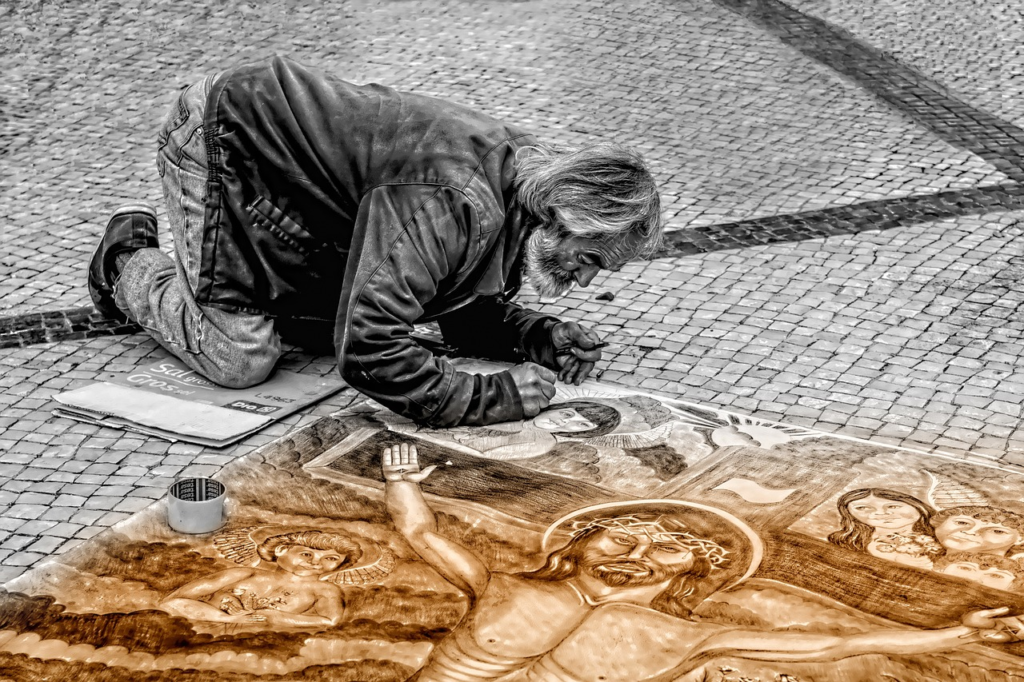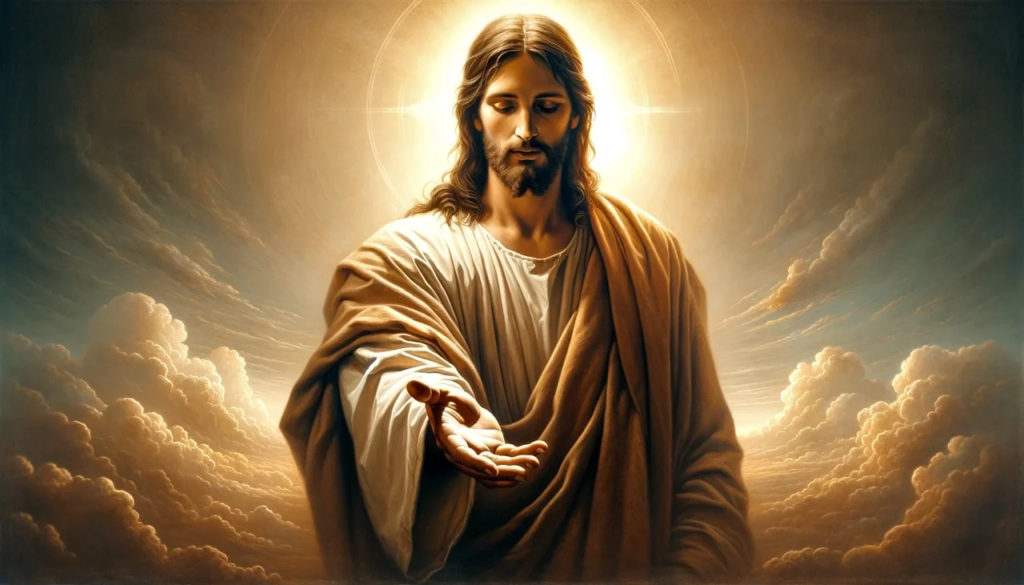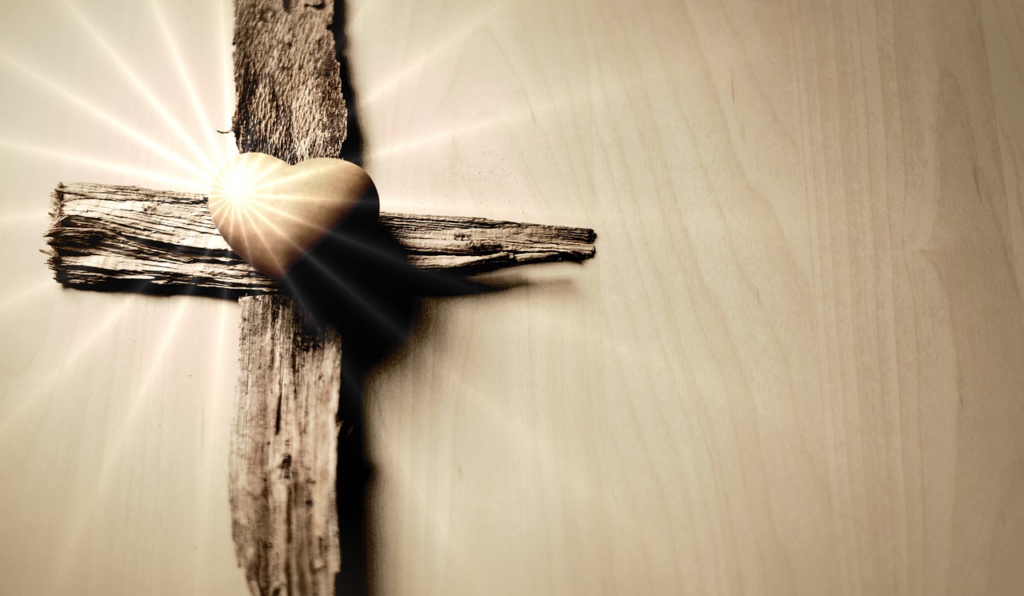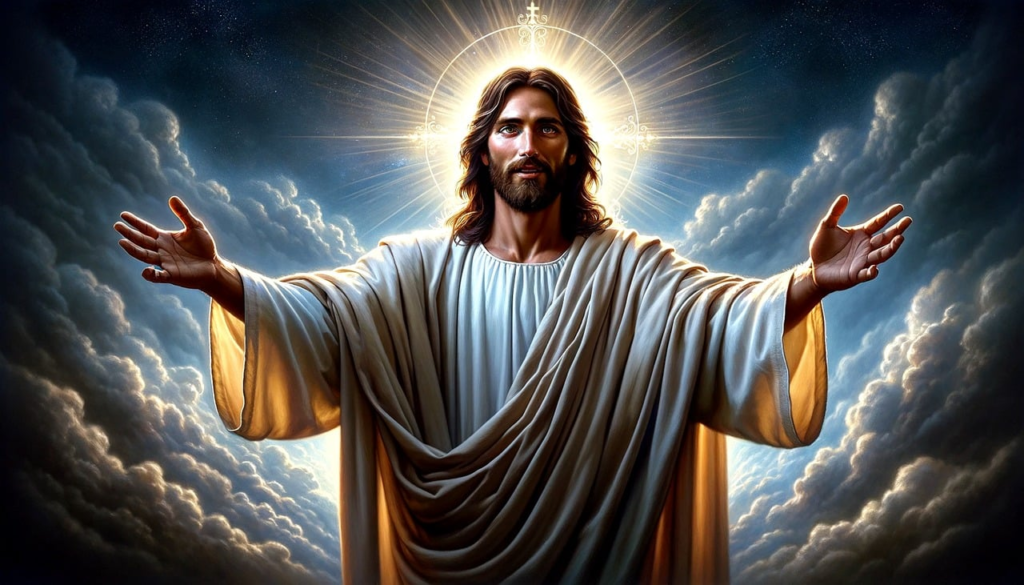Many people have been familiar with the term Easter for a long time now and may be wondering if Jews participate in Easter celebrations. Easter. Nevertheless, you will discover that Jews do not practice Easter because this holiday is of Christian origin and has to do with Jesus’ crucifixion and resurrection.
Instead, they observe Passover at this time, as this is a Jewish holiday that celebrates the Israelites’ exodus from Egyptian bondage. While both of them are popular and are usually celebrated in the winter season, their meaning and the associated traditions are extremely diverse.
Would you like to know some specifics of the Passover holiday and how the holiday is celebrated or encouraged? Let us now discover the significance and practices of Purim, a crucial Jewish celebration.
The history of Easter and how Christians celebrate it
| Topic | Description |
|---|---|
| Origins of Easter | Commemorates the resurrection of Jesus Christ from the dead. |
| Biblical Basis | Based on the New Testament accounts of Jesus’ crucifixion and resurrection. |
| Timing | Celebrated on the first Sunday after the first full moon following the vernal equinox. |
| Key Events | Crucifixion on Good Friday, resurrection on Easter Sunday. |
| Traditions | Church services, Easter Vigil, Easter eggs, feasts, and family gatherings. |
| Significance | Symbolizes victory over death, redemption, and the promise of eternal life for believers. |
Easter is one of the major and well-known Christian holidays, but it is worth mentioning that it has origins in pagan ritual. As a holiday deeply associated with Christianity, knowledge of its pre-Christian origins remains useful and fascinating. fascinating. Background knowledge of the pre-Christian aspects of the celebration can further enhance our understanding and appreciation of Easter’s meaning.
The term ‘Easter’ has its roots in the Germanic goddess Eostre, who was considered the goddess of spring, fertility, and rebirth. Easter is another popular festival that has its roots in some of the earliest pagan celebrations of the arrival of spring; thus, many of the symbols, including the egg and the rabbit, are related to this period.

Nevertheless, the customs and traditions associated with Easter are mainly biblical in that it is a Christian holiday that is believed to have been initiated when Jesus Christ rose from the dead after he was crucified. Easter always occurs on the first Sunday after Easter, the Easter full moon, which is on the lunar calendar depending on the start of spring according to the Gregorian calendar.
In conclusion, it can be stated that the practice of celebrating Easter as a pagan-Christian hybrid is truly a testimony to the vast complexity of this significant festival. These insights could help bring attention again to the value of Easter and how it is celebrated by millions of people all over the world.
The Jewish Calendar and Major Religious Holidays
| Holiday | Description |
|---|---|
| Jewish Calendar | Lunar calendar with 12 months; each month starts with the new moon. |
| Passover (Pesach) | Commemorates the Israelites’ liberation from Egyptian slavery; observed with the Seder meal and matzah. |
| Rosh Hashanah | Jewish New Year; time for introspection, prayer, and the blowing of the shofar. |
| Yom Kippur | Day of Atonement; holiest day marked by fasting, prayer, and seeking forgiveness. |
| Sukkot | Feast of Tabernacles; celebrates the Israelites’ journey in the desert, observed with meals in a sukkah. |
| Hanukkah | Festival of Lights; commemorates the rededication of the Second Temple, observed with lighting the menorah. |
The Jews use a lunar calendar divided into twelve months, whose origin can be traced to religious belief. The lunar calendar within each month begins when the new moon is sighted, which makes the months slightly shorter than the solar calendar that is in use today. This is a key lunar aspect that provides the Jewish calendar with its distinct pattern, as holidays and other observations happen on certain dates set by this approach.
Of all the Jewish stereotypes, one of the most popular is the holiday called Pesach, or Passover in English. This is a festival that takes eight days to complete and celebrates the freedom of the Israelites from slavery in Egypt, as narrated in the book of Exodus. Seder is observed during Passover, or the Passover ceremony, where symbolism is evident through the feast and special fasting laconically represented by the reading of the Haggadah. This is a period of celebrations that allow families and communities to celebrate together with the understanding that it’s centered on freedom and regeneration.
Another major Jewish holiday is Rosh Hashanah, the new year, which falls in the month of Tishrei, the seventh month in the Hebrew calendar. Rosh Hashanah is a time in which Jews and other observers of the feast reflect on the past year and seek forgiveness for transgressions they may have committed, as worshipers listen to the ram’s horn, called the Shofar. It was a period of prayer and an attempt at straightening the account, as Jews are encouraged to renew their ways for a fresh start.
Yom Kippur is the day that follows Rosh Hashanah, is known as the Day of Atonement, and is regarded as the most special day among the Jews. Yom Kippur is a day of atonement that begins at sunset and ends at the same time the following day, during which Jewish people do not eat or drink during the period, pray and seek God’s forgiveness for the sins committed, and ask for forgiveness from those whom their sins affected. It is a time of personal purification and self-introspection, culminating in an act of confession known as the Vidui.
These holidays, like other Jewish holidays on the Jewish calendar, principally offer inspiration and celebration of Jewish identity, as well as a means of strengthening the Jewish community.
In conclusion, the Jewish calendar is characterized by numerous religious holidays and rites, which are important and celebrated in specific traditions. But Passover, Rosh Hashanah, and Yom Kippur are distinctive due to the fact that they provide moments to think about one’s sins and another chance to be a better person.
Key Differences between Jewish and Christian Religious Practices
| Aspect | Judaism | Christianity |
|---|---|---|
| Central Text | Torah (Five Books of Moses) and Talmud | Bible (Old and New Testaments) |
| Place of Worship | Synagogue | Church |
| Concept of Messiah | Await the coming of the Messiah | Believe Jesus is the Messiah |
| View of Jesus | Seen as a historical figure, not divine | Believed to be the Son of God and Savior |
| Salvation | Through repentance, good deeds, and adherence to God’s commandments | Through faith in Jesus Christ and his redemptive sacrifice |
| Major Holidays | Passover, Rosh Hashanah, Yom Kippur, Sukkot, Hanukkah | Easter, Christmas, Good Friday, Pentecost |
| Rituals | Daily prayers, Sabbath observance, dietary laws (kosher) | Sacraments such as baptism and communion, regular church attendance |
Both Judaism and Christianity stem from the same family of religious’, but many differences have emerged in that aspect of the religious practices and modes that are in the two. The knowledge of these two faiths offers knowledge into their creeds and the manner in which they look at the world, as well as their religion.
Judaism is one of the oldest religious beliefs in the world. It is one of the three monotheistic faiths that originated with the union of God and Abraham, a Hebrew. Some of the principal texts held sacrosanct among Jews include the Torah, which, in its five books, gives Jewish law and ethics. Jews pray at synagogues and perform several other types of religious ceremonies and customs, such as reciting prayers on a daily basis, observing the seventh day of the week, commonly known as sabbath, and following the code of separation known as kosher dietary laws.
Christianity, which is one of the world’s most prominent religions based on Jesus Christ’s person and teachings, places emphasis on his deity, crucifixion, and resurrection. It is important to understand that the Christian people regard the Bible as their holy book, which contains the Old and New Testaments.

The New Testament contains the teachings of Jesus and the early church, the writings of the Apostles, and is devoted to Jesus Christ and the early churches. It is a common religious practice among Christians to attend fellowships, meetings, and services that are held in places of worship called churches, commonly where citizens of faith congregate to pray both individually and in groups, receive the sacraments of baptism and Holy Communion, and listen to the preaching of the word of God.
There are basic presuppositions that Jews and Christians hold in distinct forms, with some of the main differences being theology. While Jews are still looking forward to the coming of the Messianic age, Christians believe in Jesus as the Messiah, that he came and introduced heaven’s kingdom on earth through crucifixion and resurrection. Furthermore, Christians have tenants of original sin and salvation through believing in Jesus Christ, while on the other hand, Judaism believes in repenting and doing what God meant as a way of redemption.
These distinctions are evidently shown through various customs and practices that could be observed in believers of either faith. Although there are very close similarities between Jewish ethicality and Christianity in their broad terms, like compassion, justice, and loving your neighbor, there are differences in their commitments to rituals, holidays, cakes, and scripture.
Final thoughts Judaism and Christianity are two separate faiths that have different teachings, rituals, and customs. Both have common historical roots and adhere to moral values embedded in religious teachings, but core theological distinctions define beliefs and religious experiences.
Why Jews Do Not Participate in Easter Celebrations
The issue of whether or not Jews celebrate Easter can be called into question more often because Passover, one of the major Jewish holidays, is celebrated around the time Easter is observed by Christians. However, the Jewish faith does not observe Easter in any way because it is not in any way related to the Jewish faith and culture. This is particularly important in understanding Jewish outlooks and practices; thus, the reasons behind this would be revealing.
Judaism and Christianity differ in their theological perceptions, religious practices and rituals, and teachings. Even though Easter is one of the major Christian holidays, significant in the sense that Christians celebrate the resurrection of Jesus Christ, Jews do not believe in Jesus and do not centrally worship him. For this reason, Easter is an intercalary personification without religious values for the Jews; the latter do not share in festivals associated with Easter.
Passover, or Pesach, has always been a significant holiday among Jewish people. This is an eight-day festival commemorating the liberation of the Israelites from Egyptian bondage, as narrated in a Bible booklet known as Exodus. All of these celebrations include a feast in the form of the Seder meal, at which the story of the Exodus is narrated through the signs and oral recitation from the Haggadah. This is actually a time for belief, when the Jewish people ponder deliverance, liberation, and remaining loyal to the word of God.
Moreover, Jews have their reasons why they are not celebrating Easter: These basic beliefs are radically different. The Jewish religion does not agree with the beliefs of the Christian religion on the nature of Jesus, salvation, and religious holidays. While Christians celebrate Easter as a symbol of ultimate salvation of the soul and the gift of everlasting life, Jews see a covenant with God as a set of guidelines in their communal and individual lives, ethics, and duties.
“On that same night I will pass through Egypt and strike down every firstborn of both people and animals, and I will bring judgment on all the gods of Egypt. I am the Lord. The blood will be a sign for you on the houses where you are, and when I see the blood, I will pass over you. No destructive plague will touch you when I strike Egypt. This is a day you are to commemorate; for the generations to come you shall celebrate it as a festival to the Lord—a lasting ordinance.”
Exodus 12:12-14
In addition, Jews do not celebrate events that are exclusive to the Christian calendar, such as Christmas and Good Friday. However, they are confined to their religion’s time calendar, observing their occasions such as Rosh Hashanah, Yom Kippur, Sukkot, and Hanukkah, all of which are different from one another in terms of their importance and celebration.
Conclusively, it has been ascertained that Jews do not celebrate or even partake in Easter celebrations in any way since it is not a Jewish holy day. In general, Passover, with its strong themes of liberation and God’s covenantal presence, definitely occupies a very prominent position in the Jewish religious calendar for this season. Even in their differences in religious practices and beliefs, it is important for individuals to learn and try to understand each other as much as religion calls for togetherness.
Respecting Religious Diversity and Promoting Interfaith Understanding

Religious diversity is a significant challenge in the twenty-first century, and today it is more important than ever to begin to recognize the basic reason for tolerance between different faiths. It is, therefore, right and good to affirm that the variety of religions enriches the texture of human existence and spiritually unifies us closer.
Most importantly, it is noteworthy to mention that interfaith dialogue serves a crucial role in lessening the existing barriers between different religious groups. People of different faiths should be able to learn from each other and demystify myths that surround other faiths, so that faith is not a barrier but rather a way of building relations. This is because, through interfaith dialogues, the parties gain first-hand experience of other individuals who embrace a different faith, and this fosters respect, tolerance, and enhanced understanding of their common virtues of love, justice, and compassion that the different religions hold dear.
Religious tolerance is a crucial aspect that cannot be ignored when framing the societies of the world, since individuals’ rights to freely worship need to be respected. Tolerating one’s counterpart’s religious convictions encourages people to embrace themselves culturally and religiously by providing them with equal opportunities to practice their freedom of worship without prejudice. Tolerance does not mean the absence of diversities, but respect for the sanctity of the individual and human personage, no matter the color of the faith mantle he or she wears.
These differences are important in expanding our understanding of what occurs within societies and cultures around the world. It is possible to accept differences in the religious orientation practiced by people so as to appreciate the differences that the various faiths present and acknowledge the similarities that bind us as human beings. It is only right that cultural diversity be celebrated since it ensures that people embrace who they are and, based on this, helps in the growth of diverse multicultural communities.
Religious interfaith organizations are key to creating awareness and sustainable communication with people from different backgrounds. Affinity communities also allow people to meet like-minded individuals and become part of a group working on similar initiatives, campaigns, or projects, such as social justice, peace, and environmentalism. Interfaith means that while believers of different faith systems may differ in their beliefs, they are able to work together for the common good of humanity and address various pertinent issues in a fruitful manner.
Thus, protecting this right and promoting tolerance, as well as good relations between people of different beliefs, should be considered priorities for creating an environment where members of diverse faith communities can enjoy equal rights and freedoms. Indeed, religious harmony, people’s acceptance of each other’s belief systems, and appreciation of diverse global cultures may lead to harmony if individuals work together to establish a government with principles built on respect, kindness, and understanding.
The Significance of Easter in Jewish Traditions
| Topic | Description |
|---|---|
| Jewish Perspective | Easter holds no religious significance within Judaism. |
| Theological Differences | Jews do not believe in Jesus as the Messiah or his resurrection, which are central to Easter. |
| Historical Overlap | The Last Supper, a key event in Easter, is believed to be a Passover Seder. |
| Focus During Passover | During Easter, Jews are focused on celebrating Passover, commemorating the Exodus from Egypt. |
| Distinct Observances | Jewish holidays such as Passover, Rosh Hashanah, and Yom Kippur have their own unique significance and rituals. |
| Interfaith Understanding | Recognizing these differences fosters respect and understanding between Jewish and Christian communities. |
Easter is a significant festival in the Christian calendar, marking the resurrection of Jesus from the dead.
Easter symbolizes the rising of Jesus Christ from death. This event is critical to Christianity because it is the core explanation for Christ’s authority over death as the Son of God. There are lots of customs associated with Easter, such as Easter divine service, Easter meal, and others, but unquestionably the most popular and recognizable custom is exchanging Easter eggs, which mean life and resurrection.
The desire to know whether or not Jews celebrate Easter comes from a more general-minded quest to unravel how the various religions work hand in hand. To satisfy this curiosity, one needs to know that Judaism and Christianity are two separate religions that are in fact very different from each other despite the fact they have their origins from the same roots, and thus they are very much different in their beliefs, practices, and celebrations.
In Judaism, the corresponding time of year is also celebrated by the Passover, or Pesach, the holy feast that commemorates the freedom of the Israelite population from slavery in Egypt. The festival involves customs like the seder, which is a nighttime meal in which the story of the deliverance is narrated and special meals representing various parts of liberation are taken. It is a historical and spiritual holiday for Jews, filled with traditions that reflect their culture and beliefs.
Because of these differences, Jewish people do not celebrate Easter or other holidays that Christian people do. Easter, which is related to beliefs about Jesus Christ, is not a part of Judaism. Hence, the religious importance of Easter is rooted in Christianity. Jews celebrate a festival called Passover, which is rather celebrated during the same period when Christians celebrate Easter. This similarity is sometimes advantageous, yet at times it may create confusion. Nevertheless, this shows the two religions have had a different history since the early days.
It is important to grasp these differences in order to identify the specific features, directions, and approaches of each religion. Although Jews have no custom of celebrating Easter, other holidays that they do celebrate point to their Jewish roots and ancestry. It is essential that each religion be honored and accepted, just as it should honor and accept the other, to encourage interfaith tolerance and acceptance.
Exploring Jewish Traditions: The Importance of Passover and its Differences from Easter

The Jewish people have several forms of religion and culture that they believe and practice, up to date with their rich history of over three thousand years. Judaism, understood to be one of the oldest world’s religions and belonging to the category of monotheistic faiths, largely focuses on the concept of the divine agreement as far as the Jews are concerned.
Some of Judaism’s essential religious principles include the performance of commandments, or mitzvot, and the learning of sacred scriptures, including the Torah. Numerous Jewish practices are observed, including rites of passage, kosher festivals, and various other practices that characterize the Jewish community and maintain their lineage.
Passover or Pesach are possibly the most popular holidays in Judaism, and for good reason. Passover, celebrated during Easter, is a festival that commemorates the exodus of the Israelites from Egypt, as described in the book of Exodus in the Holy Bible. It is a festival that is observed for a period of seven to eight days and is observed on the 15th of Nisan, which is most commonly the month of April in the Hebrew calendar.
This festival has no synagogue services; the main event is the seder, which takes place on the first two nights, where the families sit down and retell the story of Exodus. Seder means in order, and it includes the procedure for the celebration, which includes recitation from the Haggadah, consumption of special foods such as matzah, bitter herbs, and charoset, and singing of the standard songs.
It is therefore unthinkable to overemphasize the importance of the Passover in the Jewish religion. It is all about freedom, redemption, and being thankful for whatever you have, no matter how small it is. It helps Jews to maintain their ethnicity and a sense of history, reiterating for them the tribulations of the forefathers and the role of God in coming through them unscathed.
While Halloween is a known celebration linked to Celtic pagan culture, Easter is a Christian holiday that marks the resurrection of Jesus of Nazareth. It is the final act of Holy Week, a series of events that began with the well-known Good Friday showing the crucifixion of Jesus and continued with Easter Sunday, which is associated with the resurrection of Christ. Public Easter practices lean into the notions of rebirth, salvation, and the reward of everlasting life, which are Christians’ defining principles about Jesus, the Son of God, and the Savior.
Hence, while Passover and Easter are celebrated in the spring, their significance and rituals do not overlap completely. Passover is a Holi holiday that addresses historical aspects and the memory of the Jewish people, while Easter is a holy day that protests the rising of Jesus from the dead for Christians. This is because the traditions of the concerned holidays regarding foods, rituals, and religious services differ depending on the various religions that exist.
This improved understanding of these differences helps us step back and realize how many other holidays there are, as well as how other types of people find meaning and purpose in their lives to feel a connection with religious beliefs.
Why Jews do not celebrate Easter

Easter is one of the crucial events in Christianity, whose purpose is the triumph of life over death and the passion of Christ as the renewing savior. Nevertheless, Jews do not usually celebrate Easter because of the different belief systems and the bitter experience between Judaism and Christianity.
The first possible reason for the non-observance of Easter by the Jewish faith can be simply summarized by the differences in belief systems regarding Jesus Christ. The prominent beliefs associated with Christianity are that Jesus of Nazareth is referred to as the Christ child, savior, and the son of God who was crucified and rose from the dead. All these are key aspects of Christian teaching and, as such, are commemorated during Easter, when the resurrection of Jesus is remembered.
While Christians regard Jesus as the Lord and Christ, Jews do not consider him the Messiah or divine. The major difference between Judaism and Christianity lies in how Christians recognize Jesus as the Messiah who has already come, while Jews believe that the Messiah has not yet come.
Is Easter the same as Passover?

Easter and Passover are both religious festivals celebrated at the same time, one by Christians and the other by Jews, but the two are quite different and hold different importance and significance, as well as different histories and customs.
Easter is one of Christianity’s greatest spiritual feasts because it marks Jesus’ victory on the cross through his resurrection. In the Christian faith, there was the crucifixion and death of Jesus Christ. He was buried, and on the third day, he resurrected, proving that sin and death had no hold on him. Easter is celebrated to mark this event, which Christians regard as the historical and prophetic end of the Old Testament as well as the hope of eternal life. Each year, the Christian celebration of Easter differs, and it is always on the first Sunday of the first full moon after the vernal equinox.
Celebrated during the spring, Passover, or Pesach, is among the most significant holidays in the Jewish tradition, memorializing the emancipation of the Israelite people from Egyptian bondage as narrated in the Book of Exodus. Jewish Passover is celebrated for seven to eight days from the beginning of the fifteenth day of the month of Nisan. These are the matzah, bitter herbs, and the Seder meal, where the story of the Exodus is narrated and special foods that represent different facets of the period in Egypt are consumed. Passover is one of the primary flavors of freedom, and it is a holiday that commemorates the Israelites’ deliverance by God.
Nonetheless, they are observed around the same time of the year because the two holidays have a historical relationship between themselves. Thus, it is believed that the Last Supper was a Passover Seder, and there is a relationship between the two. However, they are not the same in their theological implications or the way they are viewed.
Easter celebrates the rising from the dead of Jesus and the power of resurrection for all believers, and some customs include attending church, the Easter Holy Thursday, or Easter Vigil, and Easter egg hunting and exchanging, symbolizing rebirth. Passover mostly focuses on the Jewish past, ways, and need to express Jewishness, as well as the general need to remember freedom, with elements such as the Seder and the exclusion of chametz from the Jewish home.
Thus, although both Easter and Passover occur at roughly the same time and focus to some extent on the themes of freedom and rebirth, they remain specific religious celebrations that stem from different faiths and have different traditions, rituals, and concepts at their core, representing Christianity and Judaism, respectively.
How do Jews celebrate Passover?

Passover, also known as Pesach, is one of the most important Jewish festivals, and it is celebrated in the springtime during the month of Nissan, focusing on one of the key stories of Judaism: the exodus from Egyptian slavery as told in the book of Exodus. This important festival will be celebrated for 7-8 days, starting on Nisan 15th. This holiday is filled with rituals that serve to remind us of its central messages: freedom, redemption, and generosity.
The feast of Passover is held for two days; on the first two nights (for the first night only in Israel), it starts with a seder, a special dinner. The Seder is a very structured ceremony in which people read certain parts of the Haggadah, which is a book that plans out the Seder and narrates the story of Exodus. There are other activities like drinking four cups of wine, eating matzah, or unleavened bread, consuming bitter herbs, and other items that are placed on the seder plate.
Is Easter a holiday in Judaism?

Easter as a holiday is actually not recognized within Judaism; it doesn’t have any religious connection to the Jewish faith. Easter is one of the Holy Week celebrations and one of the holiest in the Christian religion because it commemorates the resurrection of Jesus Christ from death and the promise of eternal life. Since Jews do not acknowledge Jesus as the Messiah or God, they do not celebrate Easter, which is a Christian holiday.
As will be noted in this paper, religion, particularly Judaism, has special days or holidays that are anchored on history, the Bible, and beliefs. Some of the important traditions are Passover, Rosh Hashanah (New Year), Yom Kippur (Day of Atonement), Sukkot (Feast of Tabernacles), and Hanukkah (Festival of Lights). These holidays differ in certain practices, customs, and ideas that are most certainly connected with the Jewish religion and customs.
Therefore, although modern Jewry celebrates Passover with different significant rites and rituals that symbolically depict the liberation of their ancient ancestors, Easter is a Christian festival that is irrelevant in Jewish culture. Recognizing these differentiations is beneficial for considering the individual personalities and cultural backgrounds of each religion.
Jewish Observance During Easter
Easter is not officially recognized as a Jewish holiday, but occasionally, Jews may decide to accept this holiday in a cultural or secular way, especially in those countries where most people celebrate the holiday. This cultural understanding can be attributed to living in multicultural neighborhoods, where people have friends, workplace associates, or neighbors who are Christians and celebrate the Easter holiday.
This is why Jewish people can participate in secular aspects of Easter, such as airing and spending time with their families, rather than celebrating Jewish Easter through meals or playing Easter eggs. All these acts are not performed in accordance with the rules of their religion or faith but in a civil manner and out of consideration for fellow beings.
Reflections on the importance of interfaith dialogue during Easter and beyond brainstorm how the Jewish and Christian communities should seek to understand and appreciate each other more. This dialogue is a sincere and tolerant discussion of the living culture regarding religious concepts, rituals, and festivals. Discrimination can be effectively addressed through intensive interfaith dialogue where Christians and Jews can understand one another and clarify myths that exist between the two faiths and non-Jewish communities. For instance, activities that could be undertaken during the celebration of the two events might include a briefing on a comparative analysis of the Passover and Easter celebrations in terms of their background and religious implications.

Currently, Jews and Christians are in a position to share their common traditions during Easter and other occasions of mutual concern, showing goodwill and interfaith understanding. A good example is the active involvement of Jewish organizations in energetic service deliveries that involve Christian organizations, especially during Easter. Some of these projects may entail charity events such as food collection, disposal, and time spent serving those in need, which are Trabec’s cherished ideals of giving back.
Interfaith activities and enlightenment continue to be hosted throughout Easter and Passover by some Jews and Christians. These events commonly hold customary meals like the shared seder between the two religions, wherein people from both Jewish and Christian faiths gather to dine together while being educated on each other’s holidays. Particularly, the initiatives encouraging cooperation and exchanges aim to increase understanding between two nations while also acknowledging cultural and religious differences.
Thus, despite the fact that Jews do not celebrate Easter itself as part of their beliefs, their cultural association with Easter, as well as relations with other Christians and believers, once again prove the necessity of mutual recognition and tolerance in a culturally diverse world. These initiatives achieve the main goal of uniting Jewish and Christian communities for the sake of friendship, cooperation, and the establishment of mutual understanding in society.
Conclusion
While you might notice Easter celebrations around you, as a Jew, your focus is on the rich traditions of Passover. Through meaningful rituals and the Seder meal, you commemorate the Israelites’ liberation, cherishing your heritage and faith.
Understanding the key differences between Easter and Passover allows you to appreciate the unique significance of your observances. So, embrace Passover with joy and pride, knowing it’s your special time to honor your history and beliefs.

